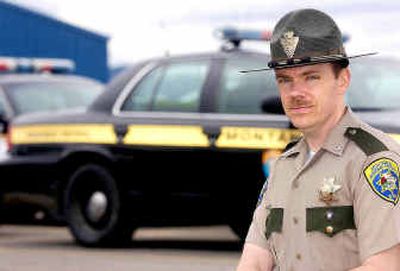Ban means final toast to legal drinking, driving

HELENA – Some Montana motorists, the joke goes, measure distances driven by how many beers a driver can down along the way. But what many here have considered a cherished freedom, grabbing a cold one for the road, is ending.
State lawmakers passed an open container ban Friday that makes Montana one of the last states to outlaw drinking and driving. Mississippi has no state law against open containers, though many Mississippi cities and counties have local ordinances.
The House approved the bill 76-21 and sent it to Gov. Brian Schweitzer, who has said he will sign it.
The ban takes effect Oct. 1, a delay designed to allow Montanans to get used to the change in what is considered a common practice for highway travelers.
Jim Burfeind, a sociologist at the University of Montana, said it’s not surprising Montana is one of the last holdouts to ban drinking and driving.
“It’s a long cultural tradition here in Montana to do that,” he said. “It’s a part of our heritage, a tradition to combine alcohol and recreation. Because of the vast distances here and the need to drive those distances, people combine those activities.”
Burfeind said Montanans’ sense of isolation, with 927,000 people scattered across an area the size of New York, Pennsylvania and Ohio combined, feeds their resistance to limits on their lives.
“We think we’re a very different place than other places and that we don’t have to run by the rules that other people have to in more congested areas,” Burfeind said. “The volume of traffic is so low, where it doesn’t matter if you’re drinking and driving. There’s a freedom connected with this isolation.”
Lt. Col. Mike Tooley, deputy chief of the Montana Highway Patrol, said the law is long overdue. Montana has the nation’s highest rate of alcohol-related deaths, according to the National Highway Traffic Safety Administration. Forty-one percent of those who die in alcohol-related crashes in Montana are legally drunk, compared with 34 percent nationally.
“We knew we had to make a change,” Tooley said. “This is one of those laws that will start the cultural change that we need on the highways of Montana. We hope that just the existence of the law will make a difference.”
Diane Rieger of Belgrade, whose 28-year-old daughter Andrea was killed by a drunken driver five years ago, shares that hope.
“It’s appalling to me that we can even think that our right to put someone else’s life at risk is more important than their right to live,” she said.
Although Montana expected to lose $5 million a year in federal highway aid without an open container law on the books, the argument before the Legislature was life and death, not dollars and cents.
Sen. Gary Perry, a Manhattan Republican and sponsor of the bill, believes the ban will have the greatest effect on younger drivers by making them think twice before sitting behind the wheel and drinking.
Still, to muster enough support for the bill, supporters accepted what some consider token penalties for violators. A driver caught with an open container faces a $100 fine, far short of the $500 that some wanted, and offenses do not show up on driving records.
The law doesn’t apply to passengers in the living area of motor homes or campers, or in buses, taxis, limousines or other hired vehicles.
Republican Sen. Jim Shockley of Victor, credited with leading the successful fight to kill a ban in the 2003 Legislature, said he still believes the law will accomplish nothing.
“It’s just another reason for police to pull you over and check for something illegal in your car,” he said. “This is what we consider our freedom and this is our right: If you’re not drunk, you shouldn’t be pulled over.”